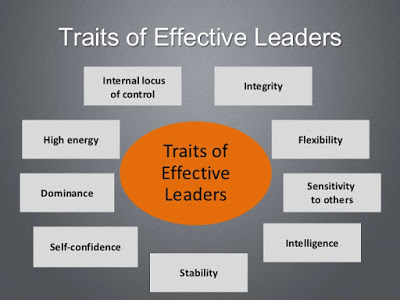
When executives identify admirable leaders, they often underestimate their struggle with certain elements of their personality. In truth, most effective leaders had to work hard to manage their personality traits to get where they are today.
Leaders who transform businesses or communities source and wield incredible power to get things done. In the context, “Power” is defined as a “leader’s ability to inspire, mobilize and lead people towards remarkable success”.
But not all leaders can source and wield power. A title or position can only go so far. So, what makes some leaders more powerful than others. There are countless personality traits that distinguish us from one another, some inherited while others are learned. According to recent research, powerful leaders possess five “innate” traits that help them source and wield power. They happen to possess these traits to a greater extent than the relatively powerless.
Relentless Focus
Powerful leaders seldom get distracted from the direction they want the organization to go towards. With a firm belief in their vision, they can focus their energies and efforts in a single direction to create momentum.
Sensitivity towards Others
Powerful leaders tend to be extremely empathetic towards others. Being sensitive doesn’t necessarily mean they act in a friendly fashion by agreeing to other views and opinions. Rather, powerful leaders are keen observers of human behavior. They are very strategic in letting sensitivity influence their decisions.
Endurance
Many powerful leaders have enormous ability to work grueling hours. Depending on industry type, the average hours worked per week is generally between 60 and 65. Research shows that to be a powerful leader one must have both physical and mental endurance.
Resilience
Powerful leaders can tactically navigate complex situations, thanks to their resilient personality. They can skillfully pitch the same idea using different tactics. While sometimes ‘resilience’ carries a negative connotation, powerful leaders consider it a necessary characteristic. It provides them with the capacity to change course, rather than clinging to ideas that are not working.
Submerging One’s Ego
Leaders who transform businesses and communities are very good at building alliances and networks of friendships. They do so by having a knack for adapting their behavior to the needs of the occasion even when their ego gets in the way. In order to gain greater power and critical resources for their vision, powerful leaders can submerge their ego in situations that demand restraint. At the same time, powerful leaders can also engage in constructive conflict very artfully if it is in the best interest of the organization. You won’t always find them pliable. They will fight for their ideas.
“Powerful leaders are like coaches of a winning team. They are perfectly comfortable not being at the podium”

